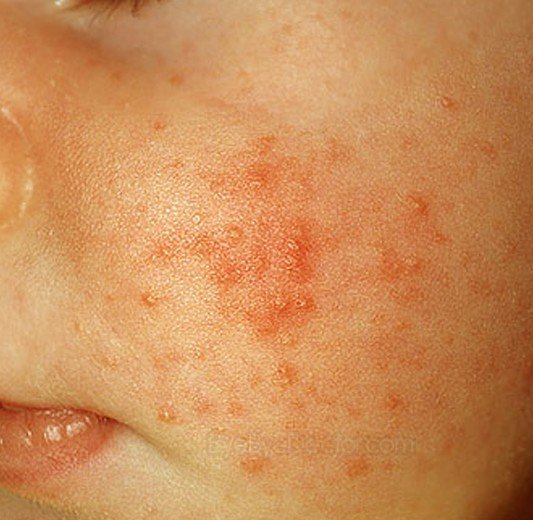Red Itchy Bumps on Skin
Last reviewed by Dr.Mary on October 3rd, 2018.
The appearance of red itchy bumps on the skin indicates a fungal, bacterial, viral or allergic response which then produces an array of dermatological conditions.
Red Itchy Bumps on Skin Causes
Allergic Reaction
Allergy to certain foods, medications or exposure to environmental allergens can produce elevated or flat, irregular skin bumps and red sores. This skin reaction frequently appears one to two weeks after the administration of a drug in which the patient is sensitive to. In such situations, the hypersensitive individual must avoid triggers at all times. Some of the common triggers that can cause allergic skin reaction in people are detergents, soaps and house chemicals.
Insect Bites
Bites from insects like mosquitoes, fleas and mites are more likely to produce skin reactions which are commonly manifested as red swollen itchy skin bumps. This reaction emerges maybe because of the toxins injected by the insects into the body.
Urticaria
The most common skin rash which produces red to pink skin bumps is hives or urticaria. This type of rash may appear and diminish in a few hours. It can be caused by certain medications such as antibiotics or by an environmental allergen including pollens, animal dander, temperature changes, medical conditions, food and anxiety.
Dermatitis Herpetiformis
Dermatitis herpetiformis is a chronic dermatological disease described by the presence of multiple itchy red bumps on the skin, which are filled with pus. The primary etiology is not yet known, but doctors assume that this is associated with gluten intolerance. Commonly, this condition affects skin areas in the scalp, back, knees, elbows and the back of the neck.
Scabies
Scabies is a skin condition caused by Sarcoptes scabiei mites. The patient may exhibit pustules and blisters located on the soles of the feet and palms with associated severe itching. Since this is highly contagious, and can easily be transmitted by picking or scratching or by sharing personal belongings such as bed sheets, towels, beddings and clothing, preventive measures and early detection are significant. S-shaped tracks on the skin distinguish rashes caused by scabies.
Heat rash
Heat rash is a skin irritation brought by too much sweat throughout the hot and humid season. It occurs at any age but is most widespread in young children. The rash appears as small pimples or blisters formed in clusters which can occur on the upper chest, groin, under the breast and elbow creases.
Red Itchy Bumps on Skin Treatment
Most of these rashes are not dangerous unless they are part of an infectious disease process. Most of these rashes disappear over time. The first step in treating the condition is to determine its underlying cause. Once the exact reason is determined and appropriate interventions have been rendered, the skin discomfort may begin to disappear. Also, proper hygiene must also be observed to control the symptoms involving the skin. To clean the skin, use only mild soap and water two times a day. Never let your skin remain soiled for a long time as this favours the microorganisms to grow and multiply on the skin.
To relieve itching, a paste made out of baking soda and water can be applied on the infected skin with a cotton ball. Ice cubes can also be used by rubbing the cubes on the itchy bump area. For pharmacological management, counter painkillers like acetaminophen and ibuprofen are prescribed to control moderate to extreme cases of swelling and inflammation. Nonprescription remedies may also include antihistamines, moisturising lotions, and creams which contain camphor, menthol, Benadryl and pramoxine. For fast recovery, topical hydrocortisone creams can be applied to the area. If these measures do not help the rash to disappear, then a general physician or a dermatologist must be sought for advice.



